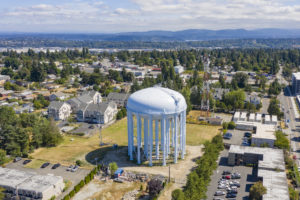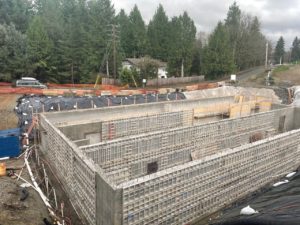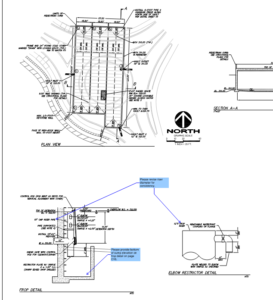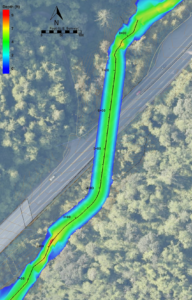Happy National Engineers Week to all current and future engineers! This year’s theme is reimagining the possible. Engineers continuously create new possibilities to improve quality of life for humans, fish, and wildlife in countless ways. This week, we would like to highlight some of the specialties within engineering that may be lesser-known services but are vital to a project.
EILEAN DAVIS, handling the permits that permit a project.
In continuation of our engineering week conversation, permitting is on the schedule today! Eilean Davis, a senior planner and professional wetland scientist from our Kirkland office,

provides permitting services to ensure that projects are designed to meet jurisdictional code and avoid environmental impacts so project approvals can be obtained. Some of those permits include conditional use permits, right-of-way permits, commercial building permits, environmental assessments, biological assessments, endangered species act (ESA) consultations, and other requirements associated with NEPA and SEPA compliance.
An example of her work includes the Beverly Park Tank located in Seattle, WA. The facility was eligible for listing on the National Register of Historic Places by the WA State Department of Archaeology and Historic Preservation (DAHP). Eilean provided permitting assistance for evaluating the context of the improvements to assess any potential historical resource impacts and coordinating with Federal Aviation Administration and Federal Communications Commission agencies regarding lighting and cellular antenna needs.
Permitting may not be the highlight of a project, but it is crucial because our client’s projects would not be possible without the relevant permits and project approvals.
JOHN FORBA, checking and double checking for safety.
Have you ever thought about the process that buildings go through before being constructed? For most people, the process involves witnessing the demolition of an old building, sitting in traffic jams, and boom! A new building is created. Behind the scenes, that project undergoes numerous steps to become a reality. One of those steps is our topic for today, peer reviews.
John Forba, a project manager in our Kirkland office, provides peer reviews for a wide range of municipal projects. As a peer reviewer, John double-checks documents, plans, and reports submitted to cities and counties by developers. He ensures that the designs meet local and universal building codes. This step of the project is crucial because it protects neighboring properties, future owners, the general public, the municipality, and most importantly, the environment by ensuring that projects meet specific standards and safety requirements.
We asked John for one piece of advice to give students interested in the engineering industry; he said, “I would tell students that want to become engineers to take broad ranging classes both in high school and college. There are many different forms of engineering, and by experiencing multiple forms of it, you may find a specialty that you really love.”



TASHA WANG, creating the best salmon highway for habit access.
We start this week off with Tasha Wang, a water resource engineer from our office in Everett. Tasha has been working on hydraulic modeling for fish passage projects that require replacing their existing culverts under state highways. If you didn’t know, hydraulic modeling is where you build two-dimensional flow models to illustrate how the design would perform under regular and high flow events.
Creating this model is very important because, ultimately, the fish passage design will allow salmon to access more habitat currently blocked by the existing highway structures built in the 1960s. Thanks to Tasha and the rest of our Stream Team, salmon can reimagine the possibility of traveling farther than they have before.
When asked what one piece of advice Tasha can give students who want to become engineers, she said, “Important and meaningful works often come out of boring and repetitive data processing and good attention to details. All the boring engineering classes you took actually help!”
And with that, we want to encourage all the current engineering students to keep pushing forward! All the hard work you are putting forth in school will make a difference, and you will be able to help improve our future.
